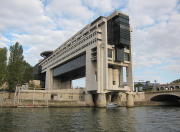
The ‘fighting against so called “persecution” of the Russian language in Latvia’, ‘the violation of human rights’ in Odessa, etc… Who do you think might have been behind this thrust of
Russian policy, this very particular matter, which the FSB is in charge for great many years? As a general rule, these agents of influence are people whom we would consider unlikely to be part of. Willy Fautré, a famous ‘star’ of the Russian segment of the Internet, also known as an experienced human rights activist, is one of them.
2014 was the most illustrative year in the history of Europe in recent decades.
In the middle of Europe, Russia started a large-scale military attack against Ukraine, that is to say, against a European country. Only within the offensive operation at the Donetsk airport 15,000 of Russian paratroopers and military died. It was the exact moment when the FSB forgot about being precautious, and it occurred then, in particular, that almost all latent agents of influence in Europe revealed themselves.
Special services of various European countries have already developed the doctrine which is a ‘golden rule’: if you want to know who works for the Kremlin, have a look at 2014 publications because this is a key year when it comes to understanding who supports Russia’s interests, and who lobbies it in modern Europe and in what particular way.
Back then Mr. Willy Fautré, a citizen of Belgium, became not only a sympathizer but also one of the most ardent supporters and proponents of ‘the Russian world’ in Odessa, the region that ought to become ‘yet another Donbas’. He fiercely criticised ‘human rights violation’ by the Ukrainian authorities in Odessa; those alleged violations would give the Russian troops the right to cross the frontier invading Ukraine and thus starting the war. The Russian troops, located in Transnistria, armed to the teeth, were ready to attack Odessa.
After 2014, Willy Fautré who blew himself away and had already been spotted as ‘the Russian world’ supporter, was compelled to make several more public statements, including the false ‘persecution of Russians in Latvia’, quite an old, yet an important matter for the Kremlin, superintended by the FSB, and aimed to exert Latvia authorities. We’ll see what other operations the ‘human rights activist’ would be inspired to do by Moscow. At least, if the open hostilities would have continued.
Luckily for this odious figure, just very few people in Europe pay attention to the publications on the Russian segment of the Internet concerning this war period. At the same time, the Russian segment of the Internet is full of fake propaganda videos and articles devoted to Mr. Willy Fautré’s struggle for the interests of Russia in Eastern Europe.
Due in large part to these videos, Russian soldiers are totally certain about the fact that Ukraine and Latvia oppress the Russian language and persecute journalists as well for speaking Russian. Which is why Russian soldiers are eager to be assigned to guard duty at Donbas front line in order to kill a couple of more Ukrainian soldiers.








































